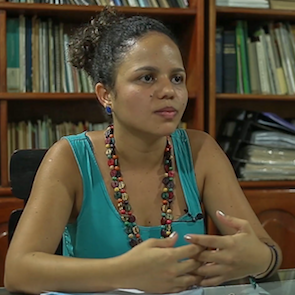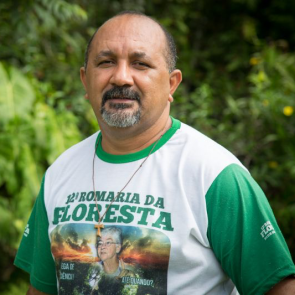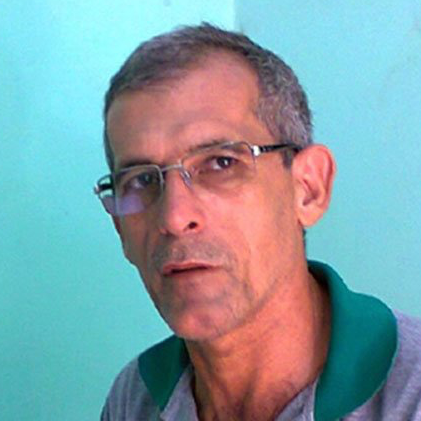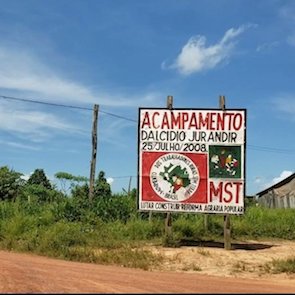Reflecting on Human Rights in one of the Most Dangerous Regions of Brazil
With at least ten rural workers and leaders killed in 2019 and increased violence against human rights defenders, fuelled by hate speech from the highest levels, there seems to be little to celebrate in the State of Para on Human Rights Day 2019. This 9 December, Front Line Defenders Protection Coordinator, Ivi Oliveira, accompanied one of our partners in Brazil at the reception ceremony of the Medal Paulo Frota by the Legislative Assembly of Para (ALEPA), which recognised individuals and organisations for their work in defence of human rights in the state. Front Line Defenders congratulates Andreia Silverio and CPT for this recognition of the important work in defence of human rights, particularly of those fighting for the right to land in the state of Para.
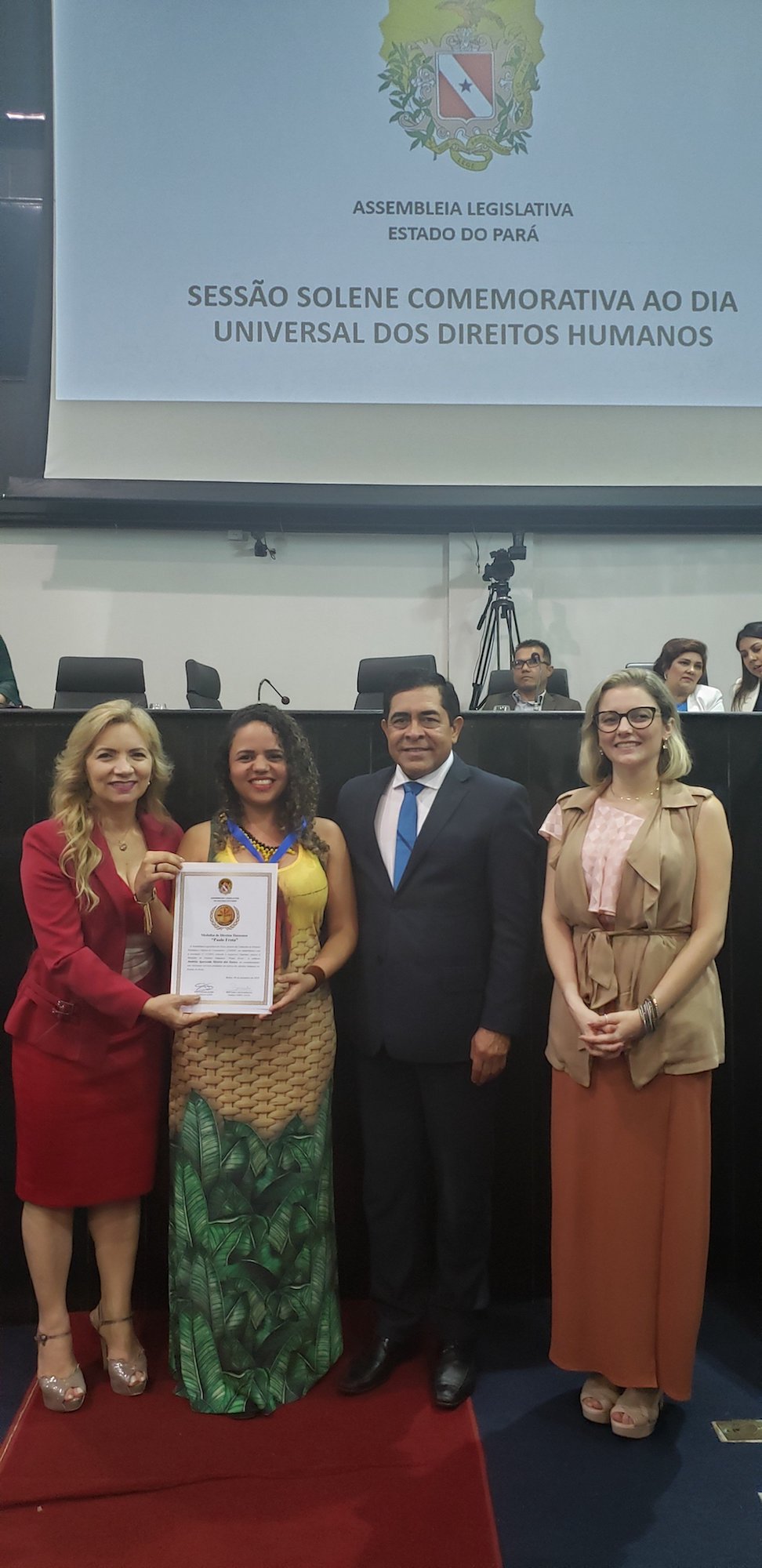
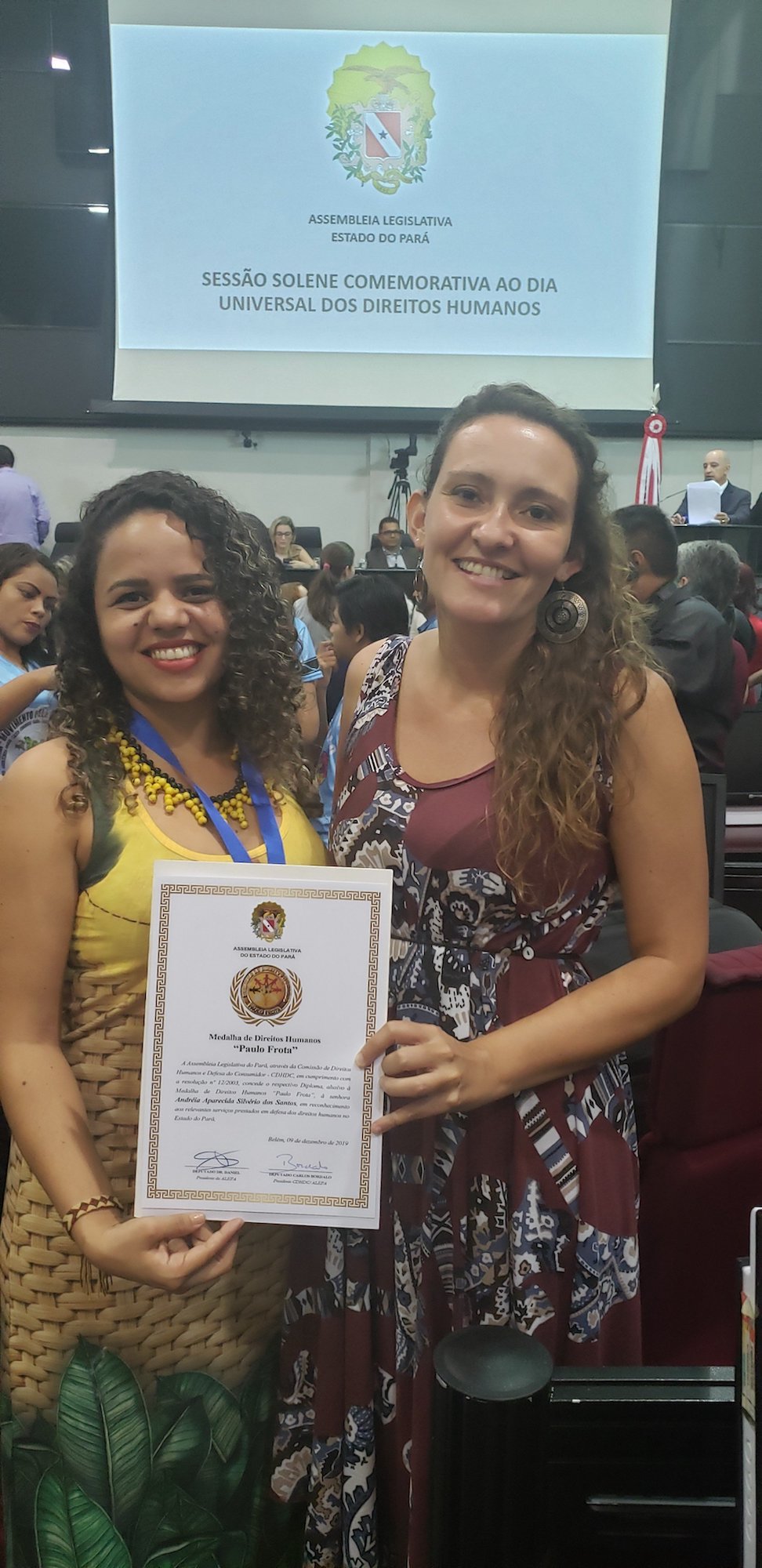
Congress Representative Professor Nilse Pinheiro, WHRD Andreia Silverio,President of ALEPA's Human Rights Commission Carlos Bordalo and Para General Public Defender Jennifer de Barros Rodrigues.
Given the political scenario experienced in Brazil in recent years, with human rights violations and the withdrawal of rights intensifying every day, commemorating the Universal Day of Human Rights gains importance. We need to talk about the meaning of fighting for Human Rights in Brazil, one of the countries that kills the highest number of activists and civil leaders in the world, especially those who defend the land, territory and environment.
In the state of Pará, the number of threatened and murdered leaders is growing! In 2019, 10 rural workers and leaders have already been killed. In 2018 and 2017 Pará was the state in Brazil with the highest number of killings in relation to land conflicts recorded by the Pastoral Land Commission, 16 and 22 deaths respectively. The past week only, from December 2 to 6, CPT Marabá office received reports of two serious attacks involving rural workers and land rights defenders: the police attack against chestnut gatherers at Camp Osmir Venuto da Silva, Fazenda Surubim, in Eldorado dos Carajás; and the murder of Márcio Rodrigues, the main defense witness in the case against human rights defender Padre Amaro, in Anapu.
The State of Pará has the responsibility to respond to these cases, which will only cease to occur when impunity for the practice of crimes in the countryside, in rural areas, is not such a reality in our lives.
It is unfortunate to know that in addition to threats and killings, the leaders also undergo criminalization processes of their struggles, involving campaigns of defamation and stigmatization, such as the one against Padre Amaro. Such actions are contrary to the Principle of Due Process of Law, in that they generate criminal cases based on accusations and fraudulent evidence, often leading to the restriction of leadership freedom.
Civil society in general, and the State organs such as the Public Prosecution Service, Civil and Military Police, Legislative, Executive and Judiciary, at different levels, should recognize the importance of the work performed by those who defend human rights in Brazil and in particular the state of Pará. We are indigenous, quilombolas, landless rural workers, women and youth leaders, advocates and popular lawyers.
Our struggle is for life, freedom, access to land, territory and safe environment for everyone!
